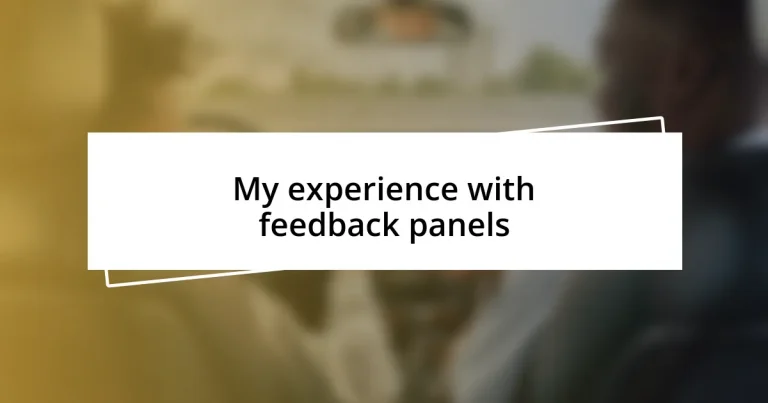Key takeaways:
- Feedback panels provide diverse perspectives, constructive criticism, and user-centered insights that enhance project development.
- Challenges include managing differing opinions, avoiding feedback overload, and ensuring feedback is contextually relevant.
- Effective feedback should be specific, balanced with positive reinforcement, and timely to foster an engaging discussion.
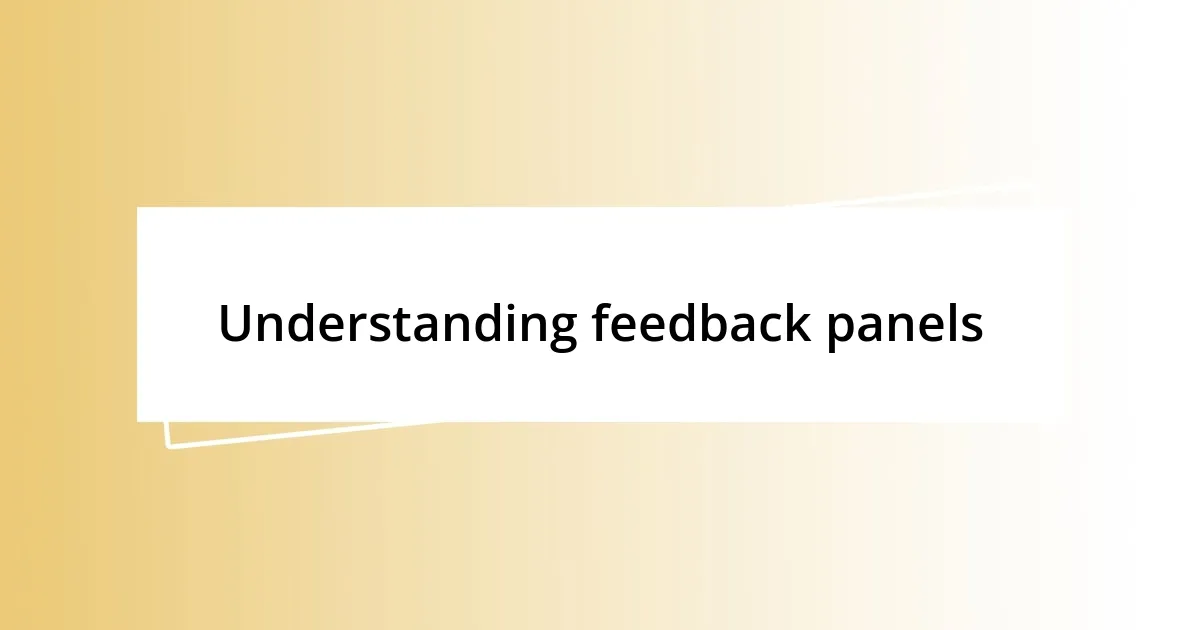
Understanding feedback panels
Feedback panels are essential tools in understanding audience perspectives and gauging reactions to products or ideas. I remember my first encounter with one; I felt a mix of excitement and nervousness as I presented my work, wondering if it would resonate with the panelists. Have you ever wondered how different viewpoints can shape and refine a project?
While participating in feedback panels, I’ve discovered that their strength lies in the diversity of opinions presented. Each member brings unique experiences and insights, often leading to surprising suggestions I hadn’t considered. It’s crucial to remain open; I’ve learned that embracing constructive criticism can be transformative.
In my experience, feedback panels not only help identify areas for improvement but also ignite new ideas. Once, a panelist’s comment sparked a creative breakthrough for me, leading to a project that exceeded my expectations. Isn’t it fascinating how a single conversation can pivot the direction of our work?
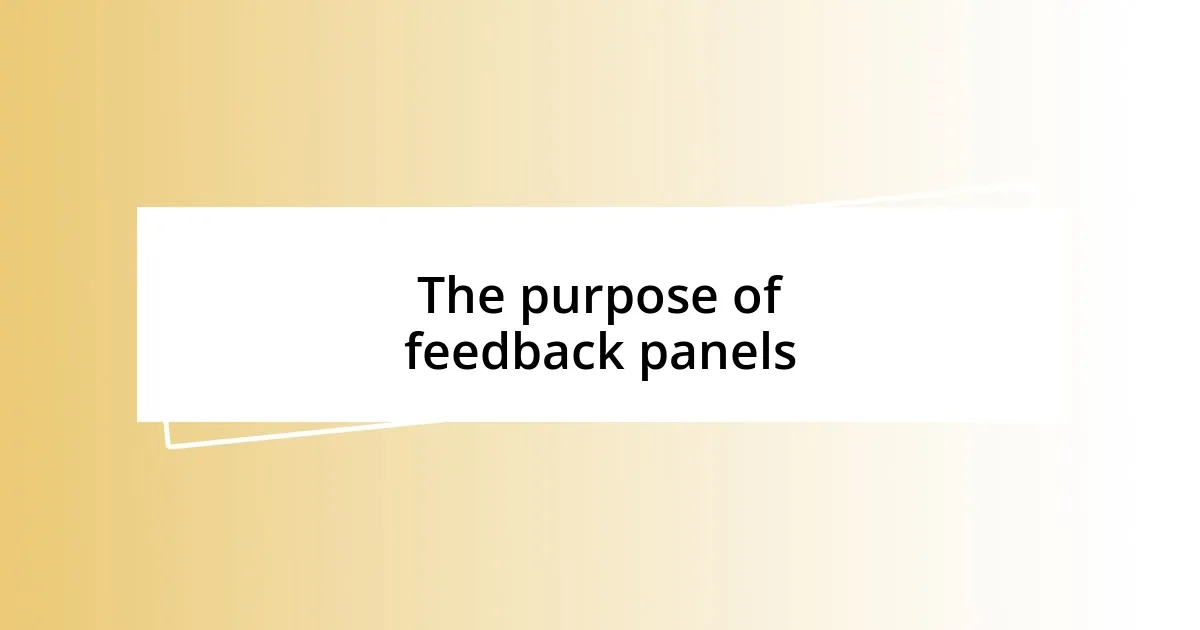
The purpose of feedback panels
Participating in feedback panels has helped me grasp their primary purpose: to gather varied perspectives on a project. I vividly remember a particular session where a panelist drew on their own industry experience, leading me to rethink my approach entirely. This kind of input is invaluable, as it pinpoints blind spots I might not have noticed on my own.
The purpose of feedback panels can be summed up in a few key points:
- Diverse Perspectives: Different backgrounds bring unique viewpoints, enhancing the discussion.
- Constructive Criticism: Honest feedback cuts through to the heart of issues that require attention.
- Idea Generation: Panelists often suggest innovative solutions I hadn’t considered.
- User-Centered Insights: They help align the project with audience needs and expectations.
- Confidence Boosting: Positive reinforcement and valuable input can energize one’s creative process.
It’s amazing how a single session can illuminate paths I hadn’t even thought to explore. That mix of guidance and encouragement can really empower creators, reminding me of the collaborative magic that feedback panels foster.
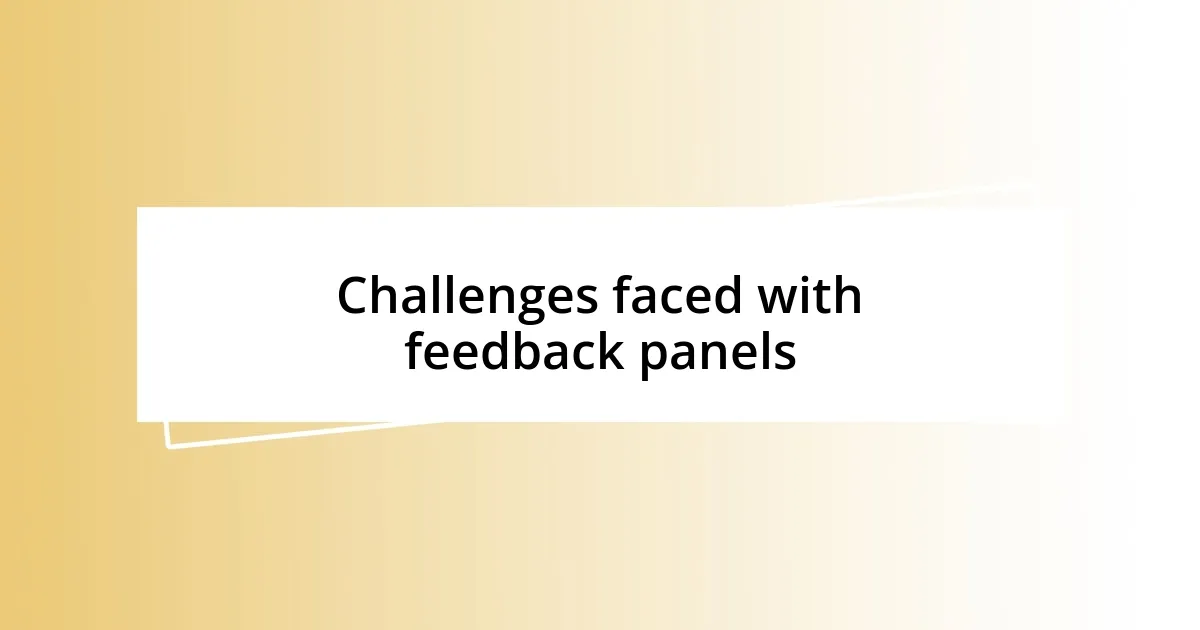
Challenges faced with feedback panels
Facing challenges while involved in feedback panels is a common experience for many. One of the main hurdles I encountered was managing differing opinions among panelists. It often felt like a balancing act, trying to appreciate each perspective while also feeling overwhelmed by conflicting feedback. I remember a session where two panelists had completely opposing views on a key aspect of my project, leaving me uncertain about the best way forward. I had to remind myself that varying opinions can lead to an enriched understanding, though it didn’t come without its own stress.
Another challenge I often encountered was the issue of feedback overload. Sometimes, I walked away from a panel with so much information that it felt paralyzing. I learned that filtering through feedback is essential to target what genuinely resonates with the project’s goals. For example, there was a time when I received praise for one aspect while many offered suggestions for improvement in others. I struggled to prioritize which feedback took precedence, which delayed my progress. That experience taught me the importance of focusing on the most impactful pieces of advice and not getting lost in the noise.
Lastly, I found that some panelists shared feedback without a clear understanding of the project’s context. This sometimes led to suggestions that were irrelevant or not feasible. For instance, there was a panel where one participant suggested drastic changes to my work based solely on their preferences rather than the underlying objectives. It made me realize that while all feedback is valuable, context is everything. Engaging in discussions beforehand to clarify goals can be a simple yet effective way to mitigate this issue.
| Challenge | Description |
|---|---|
| Differing Opinions | Conflicting feedback can create confusion and uncertainty about direction. |
| Feedback Overload | Too much information can be paralyzing, making it hard to prioritize suggestions. |
| Lack of Context | Feedback without understanding can lead to irrelevant or impractical suggestions. |
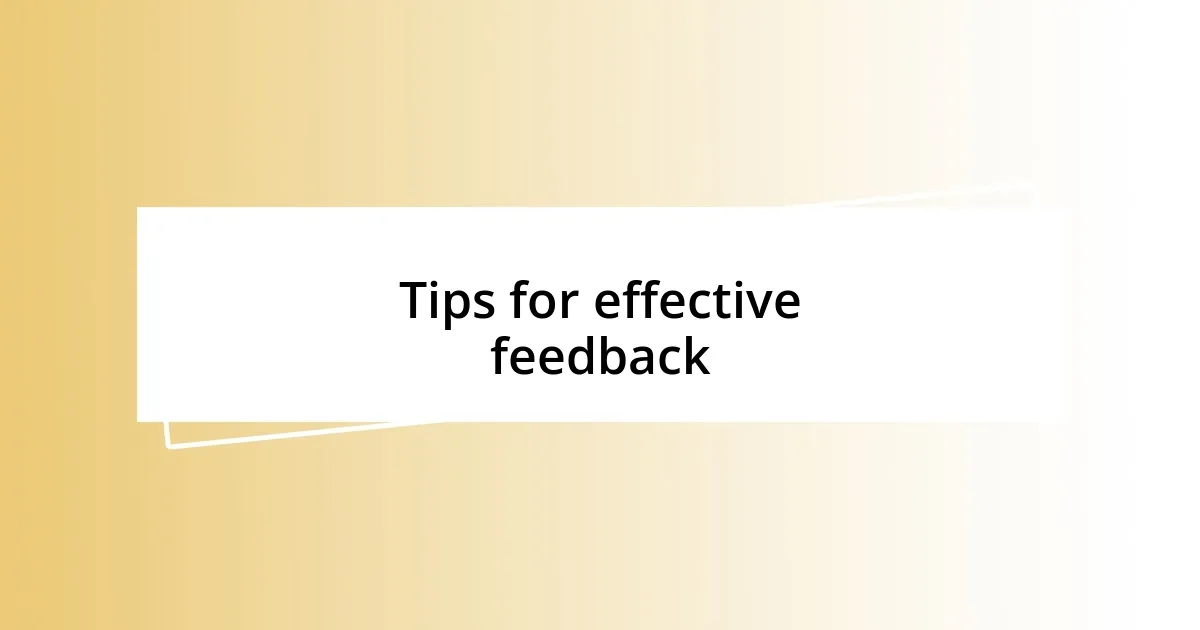
Tips for effective feedback
When it comes to giving effective feedback, I’ve found that being specific is key. Instead of saying “that part was good,” I aim to pinpoint what exactly resonated with me. For instance, during a recent feedback session, I mentioned a particular design choice that really caught my eye, and the creator was thrilled to hear the details. It not only validated their work but also encouraged them to explore that direction further. Isn’t it amazing how a few precise words can ignite motivation?
I’ve also realized the importance of balancing positive and constructive feedback. It’s easy to focus only on what needs improvement, but I’ve learned that acknowledging strengths is equally crucial. I remember a time when I was disheartened by harsh critiques. Afterward, a panelist pointed out what was working well, and it completely shifted my outlook. How empowering it can be to hear what you’re doing right, along with ideas for growth!
Lastly, timing matters in delivering feedback. I’ve observed that providing insights right after a presentation can lead to a more organic discussion. Once, I hesitated and waited a week to share my thoughts, which left the creator uncertain about my reactions. When I spoke up in the moment, it sparked a lively conversation that refined their ideas immediately. How often have we missed the chance to build on a momentum that could spark creativity? Engaging promptly can turn feedback into a spirited collaboration rather than a mere evaluation.












